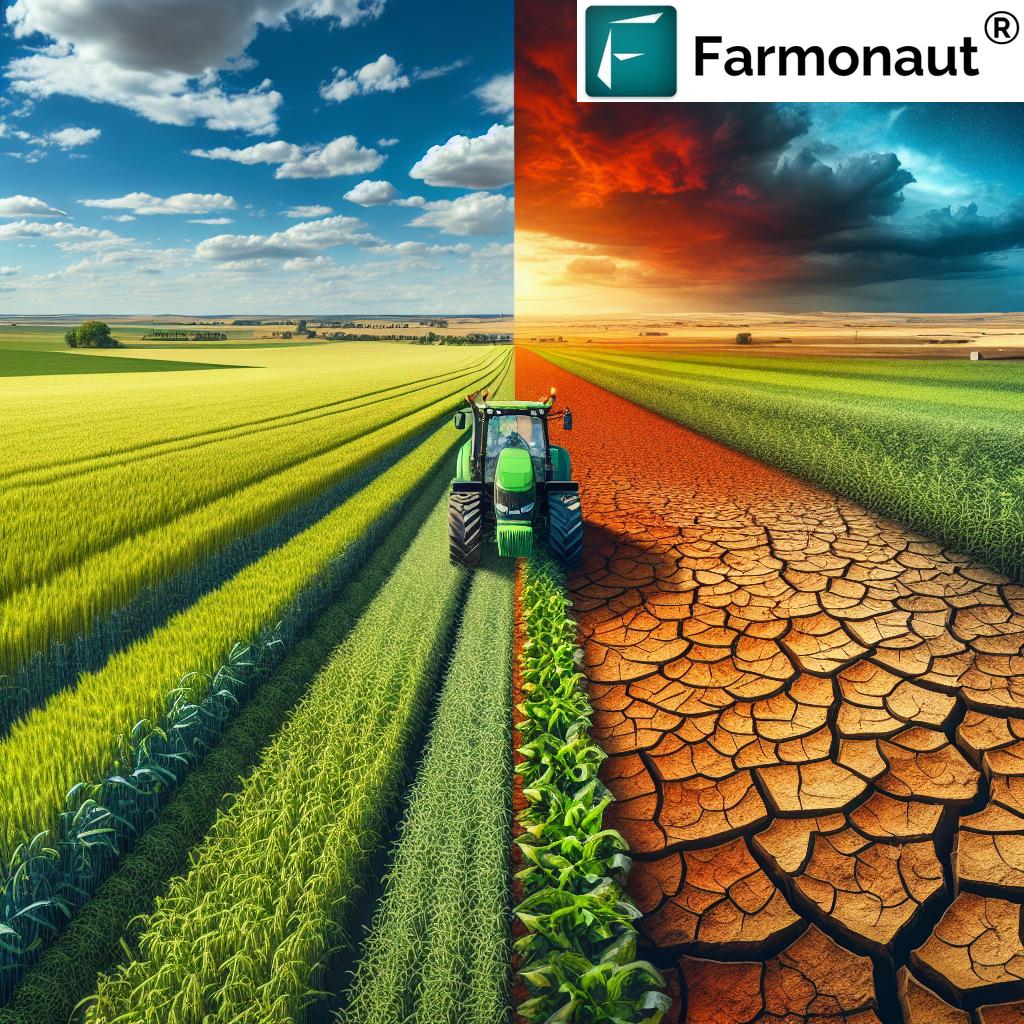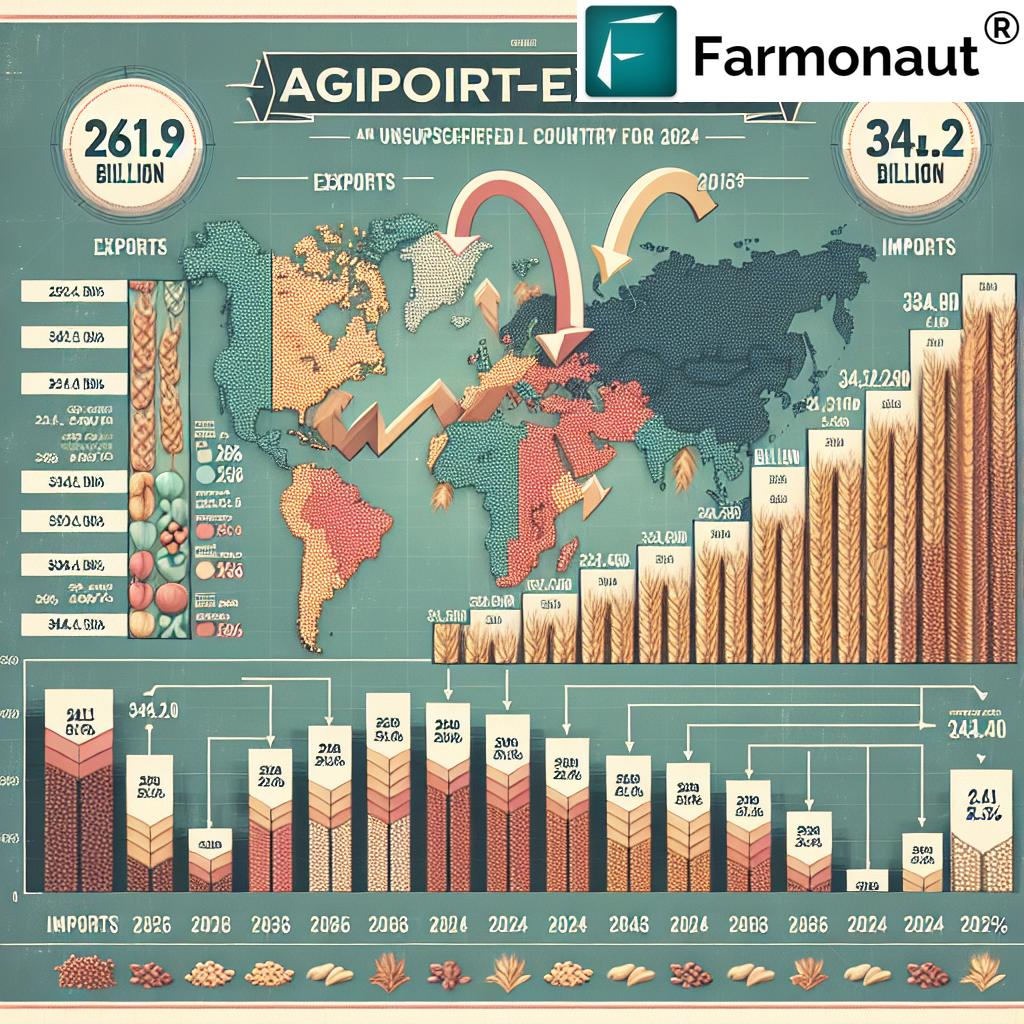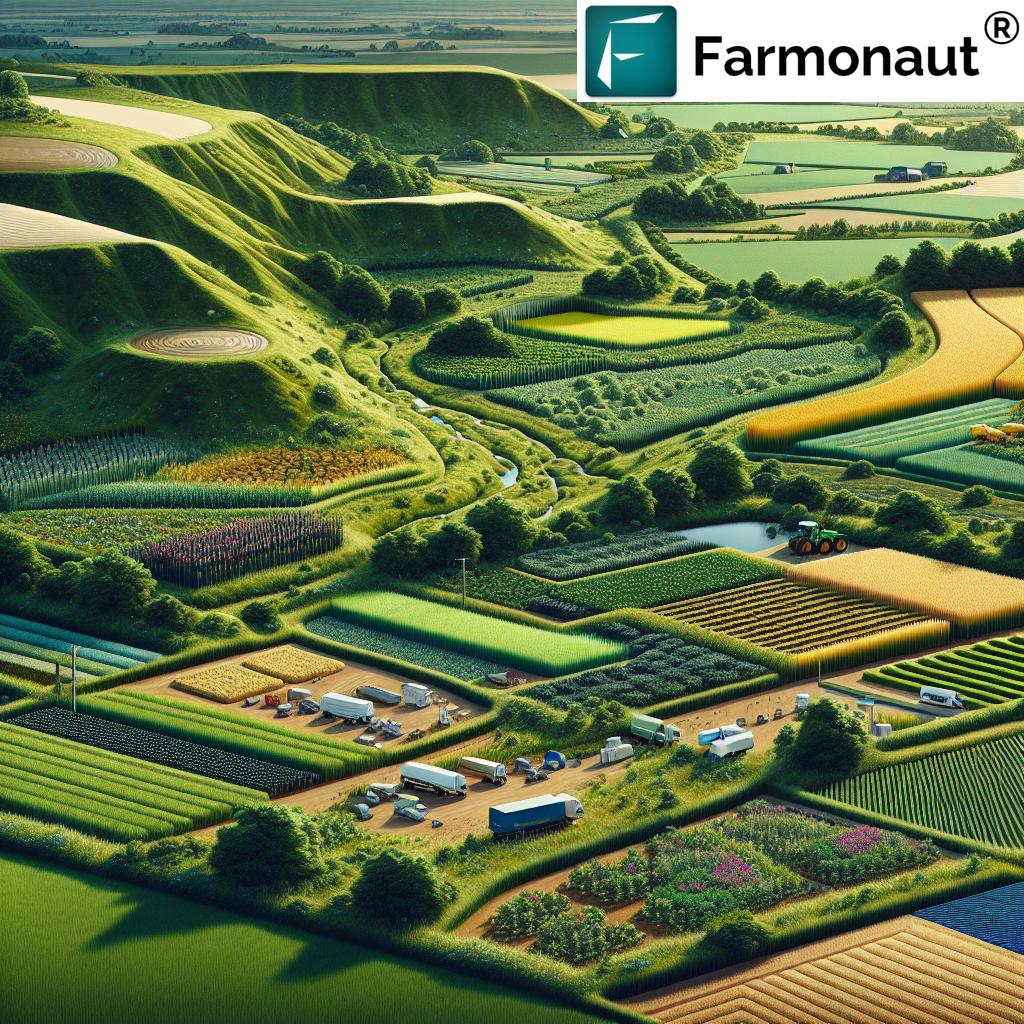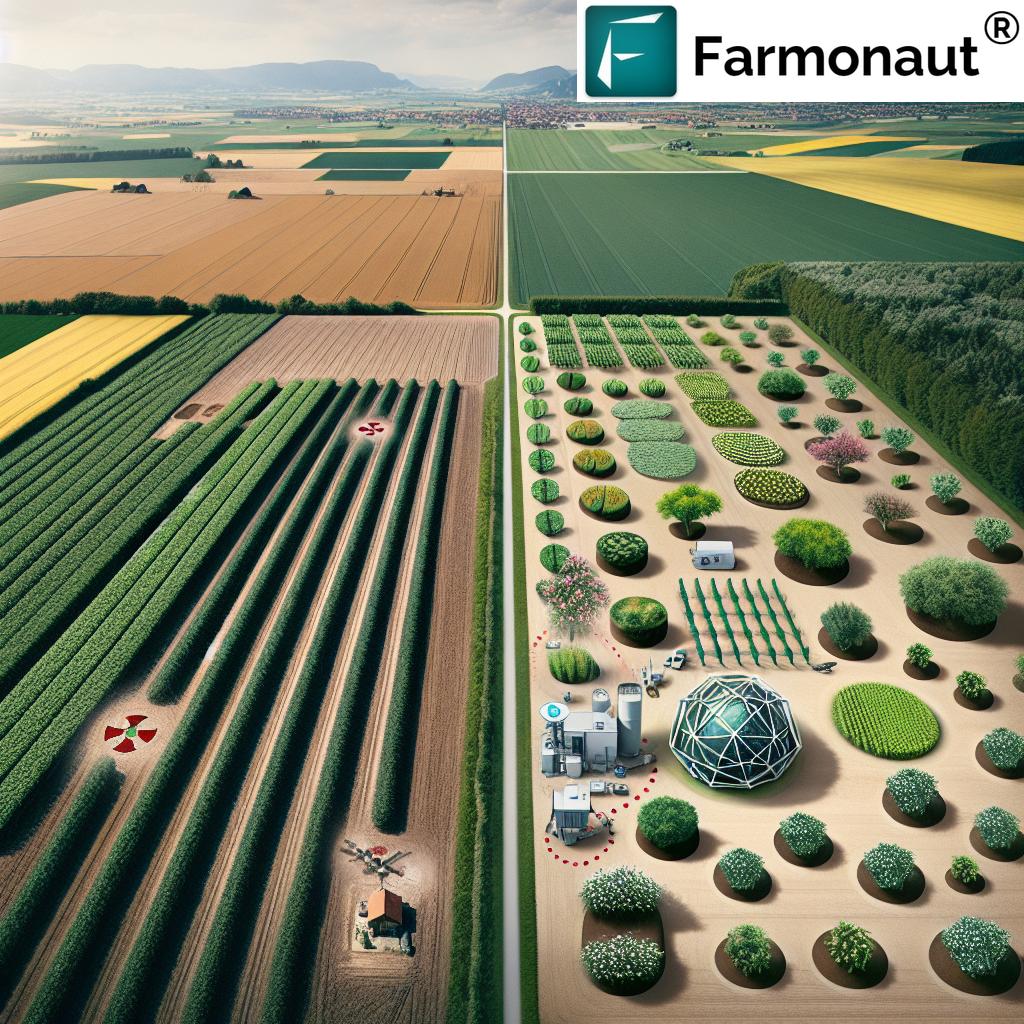Agricultural Enterprises in Hungary: 2025 Trends & Innovations
Meta Description: Agricultural enterprises in Hungary are evolving fast for 2025, shaped by new trends, sustainable innovations, and rural development prospects. Explore what’s driving change in Hungarian agriculture this year—and beyond.
- Trivia: Sustainable Practices & Investment
- Summary: Agricultural Enterprises in Hungary—A 2025 Perspective
- Overview of Agricultural Enterprises in Hungary
- Key Sector Trends Shaping 2025
- Structural Transformation & Enterprise Size
- Sustainability, Environmental Challenges & Policy
- Innovations Revolutionizing Hungarian Agriculture
- AgriTech: Digital Farm Management & Satellite Solutions
- Agricultural Trends & Innovations Comparison Table (2024 vs. 2025, Hungary)
- Economic & Social Role of Agricultural Enterprises
- Market Access, Value-Added Products & Global Competitiveness
- Key Challenges for Agricultural Enterprises in Hungary in 2025
- Future Prospects & Outlook: Hungarian Agricultural Enterprises
- Farmonaut’s Role in Hungarian Agricultural Enterprises
- FAQs: Agricultural Enterprises in Hungary (2025)
- Conclusion
- Farmonaut Subscriptions
“Hungary’s agricultural sector is projected to adopt 30% more sustainable practices by 2025 compared to 2022.”
“Rural development investments in Hungary are expected to rise by €120 million in the agricultural sector by 2025.”
Summary: Agricultural Enterprises in Hungary—A 2025 Perspective
Agricultural enterprises in Hungary are undergoing a profound transformation as we move through 2025, playing a pivotal role in the nation’s economy, culture, and food security. Reflecting both tradition and innovation, Hungarian agricultural enterprises continue to foster rural development, leverage modern technologies, and adapt to changing market and environmental challenges.
This article explores key trends, challenges, and innovations shaping the sector, offering a comprehensive overview of the current state and future outlook for Hungarian agricultural enterprises.
Overview of Agricultural Enterprises in Hungary
Hungary’s agricultural landscape is characterized by a diverse mix of enterprises, including small family farms, cooperatives, and larger agribusiness firms. These entities cultivate cereals such as wheat and maize, oilseeds like sunflower and rapeseed, a rich variety of fruits (including apples and cherries), and a robust array of vegetables.
On the livestock front, cattle, pigs, and poultry remain especially prominent, underpinning a significant sector that continues to contribute to Hungary’s GDP and national food security.
The sector benefits from Hungary’s fertile soils, favorable climatic conditions, and strategic access to European markets. The combination of tradition and modernization allows enterprises to maintain competitiveness, adapt to global market demands, and foster ongoing economic and rural development.
Key Sector Trends Shaping Agricultural Enterprises in Hungary for 2025
- Digitalization & Precision Agriculture: Use of data analytics, AI, satellite imagery, and smart tech for farm management.
- Sustainable & Integrated Practices: Implementation of organic farming, crop diversification, and resource management aligning with EU Green Deal and sustainable development goals.
- Structural Consolidation: Gradual merger of small farms into medium and large enterprises for economy of scale, efficient operations, and adaptation to market conditions.
- Value-Added Production: Growth in specialty and premium goods, including organic products, traditional Hungarian wines, and spice exports such as paprika.
- Climate Resilience: Investments in drought-resistant crops, irrigation technologies, and carbon-neutral farming systems to address climate change challenges.
- Workforce Transformation: Addressing rural depopulation and labor shortages through automation, robotics, and upskilling programs.
- Smart Supply Chains: Deployment of blockchain-based traceability and digital technologies for transparent, secure, and efficient supply chain management.
- Continuous Policy Evolution: Integration with European Union’s Common Agricultural Policy (CAP) and the Green Deal to drive sustainability and competitiveness.
Structural Transformation & Enterprise Size—The Evolution of Hungarian Farms
In 2025, structural transformation remains one of the most notable trends across agricultural enterprises in Hungary. There has been a gradual consolidation of small, family-operated farms into medium and large-scale enterprises—a shift driven by the need for economies of scale, adoption of advanced technology, and more efficient resource management systems.
The integration within the European Union’s Common Agricultural Policy (CAP) has further accelerated this trend, favoring technologically advanced, sustainable farm practices and integrated operational frameworks.
- Family Farms: Still a vital segment, characterized by traditional knowledge, local varieties of crops (cereals, oilseeds, fruits), and livestock (cattle, pigs, poultry).
- Medium and Large-Scale Enterprises: Increasing dominance due to better access to capital, technology adoption, and ability to manage complex supply chains.
- Cooperatives & Agribusiness Firms: A significant portion of Hungary’s agricultural output passes through these collaborative structures, achieving higher productivity and market reach.
As the average enterprise size and operational scope grows, the sector continues to embrace modern agricultural practices, including precision farming, digital management tools, and advanced resource optimization. These evolving structures are also laying the groundwork for future resilience and competitiveness in both EU and global markets.
For large-scale Hungarian agricultural enterprises, specialized farm management solutions can streamline operations, deliver multispectral insights, and optimize workflow across vast properties. Discover how Farmonaut’s large scale farm management platform supports digital transformation for cooperatives and agribusinesses in Hungary.
Sustainability, Environmental Challenges & Policy Drivers
Increasing environmental challenges—from soil degradation and water management to climate volatility—have become major policy priorities for Hungarian agricultural enterprises in 2025. The pressures of climate change and EU climate policies have led to greater adoption of sustainable practices, such as:
- Organic farming: Reduction or elimination of chemical fertilizers and pesticides.
- Crop diversification: Integrating new crops alongside traditional cereals (wheat, maize), oilseeds (sunflower, rapeseed), and local fruits (apples, cherries) to increase resilience.
- Efficient Irrigation & Water Use: Embracing drip irrigation, weather-informed planning, and AI-based monitoring.
- Carbon-Neutral Systems: Widespread experimentation with carbon footprint monitoring and reduction tools and incorporating agroforestry (tree-crop-livestock systems) for greater climate resilience.
- Integrated Pest Management (IPM): Strategic pest control with minimal environmental impact.
- Renewable energy: Using solar panels and biogas systems to power farm operations, reducing dependence on fossil fuels.
The Green Deal and CAP frameworks further incentivize sustainable agriculture, with dedicated financial support for enterprises adopting eco-friendly technologies, protecting soils, and preserving Hungary’s agricultural heritage.
Innovations Revolutionizing Hungarian Agriculture in 2025
Modern agricultural enterprises in Hungary are at the forefront of adopting innovations that redefine both productivity and sustainability:
- Precision Agriculture: Combining GNSS, remote sensing, and IoT-enabled sensors to optimize sowing, fertilization, irrigation, and harvesting operations.
- Artificial Intelligence: Supporting farm planning, yield prediction, and soil analysis for more informed, timely decision-making.
- Blockchain-enabled Traceability: Strengthening food safety, consumer trust, and regulatory compliance in the supply chain. Discover how blockchain secures every step of agricultural supply chains in Hungary: Farmonaut’s blockchain traceability solution.
- Robotics & Automation: Smart machines decrease reliance on human labor and accelerate planting and harvesting—an important response to labor shortages.
- Smart Resource Management: Use of advanced planning software for optimum usage of water, fertilizers, labor, and machinery.
- Mobile, API, and Cloud Technology: Real-time farm monitoring and analytics accessible anywhere—with tailored solutions for API integration and developer documentation empowering Hungarian agribusinesses.
These technological solutions are woven into the fabric of modern agricultural enterprises, bolstering long-term sustainability, efficiency, and competitiveness for Hungarian agriculture in 2025 and beyond.
AgriTech: Digital Farm Management & Satellite Solutions
In Hungary, digital farm management tools are transforming how agricultural enterprises plan, monitor, and manage large-scale operations. Innovations include:
- Satellite Imagery for Crop Health Monitoring: Real-time NDVI and vegetation indices for analyzing crop development, identifying stress, and improving resource deployment.
- AI-Based Weather & Farm Advisory Systems: Smart tools for predicting optimal seeding, irrigation, fertilizer use, and harvest timing.
- Blockchain for Secure Supply Chains: Ensuring every stage of agricultural product traceability—vital for exports and meeting EU regulatory requirements.
- Fleet and Resource Management: Digital oversight of farm machinery and transportation for efficient large-scale farming in Hungary. Discover Farmonaut’s Fleet Management Suite for seamless logistics, optimized costs, and safer farm operations across vast rural landscapes.
Farmonaut’s Jeevn AI advisory system harnesses satellite data, local weather, and AI to provide tailored strategies for Hungarian farm operations—helping enterprises mitigate environmental risks, boost yields, and ensure long-term sustainability.
Mobile-first farm management: Download the Android App or the iOS App for full feature access, on-site monitoring, and strategic farm decision support customized for Hungarian agricultural enterprises.
Agricultural Trends & Innovations Comparison Table (2024 vs. 2025, Hungary)
| Trend/Innovation | 2024 Estimated Adoption Rate (%) | 2025 Projected Adoption Rate (%) | Key Benefits | Relevant Challenges |
|---|---|---|---|---|
| Precision Agriculture | 40% | 60% | Improves yields, optimizes inputs, saves costs, increases sustainability | Upfront investment, need for technical skills, data privacy issues |
| Digital Farm Management | 32% | 55% | Real-time decision support, reduces labor, enhances efficiency | ICT infrastructure, digital literacy, integration with legacy systems |
| Sustainable Practices (Organic, Crop Diversification, Carbon-Neutral, etc.) |
22% | 35% | Biodiversity, improved soil health, access to premium markets | Transition costs, yield variability, regulatory compliance |
| Blockchain Supply Chain Traceability | 12% | 30% | Transparency, fraud reduction, market access, food safety | Integration complexities, cost for SMEs, data standardization |
| Rural Development Initiatives | 38% | 55% | Employment, infrastructure, preserving rural culture, reducing depopulation | Funding access, long-term planning, youth engagement |
| Robotics & Automation | 9% | 18% | Reduces labor dependence, increases harvest speed, data-driven | Capital intensive, technical expertise, workforce adaptation |
| Environmental Impact Monitoring | 14% | 28% | Compliance, sustainable branding, actionable insights | Regulatory complexity, cost of monitoring, data granularity |
Economic & Social Role of Agricultural Enterprises in Hungary
Beyond food production, agricultural enterprises in Hungary make essential contributions to:
- Employment: Rural jobs and livelihoods, especially outside urban areas, helping to preserve local identities and communities.
- Rural Development: Supporting infrastructure, educational opportunities, and cultural heritage through investment and innovation.
- National GDP: Agriculture accounts for a significant share of Hungary’s economic output, directly and indirectly.
- Value Chain Formation: Integration with agribusiness sectors including food processing, packaging, logistics, and export.
- Food Security: Reliable, high-quality output ensuring a safe national food supply, as well as driving exports to European and global markets.
The sector’s dynamic evolution means that agricultural enterprises in Hungary remain at the forefront of both economic stability and rural development.
“Hungary’s agricultural sector is projected to adopt 30% more sustainable practices by 2025 compared to 2022.”
“Rural development investments in Hungary are expected to rise by €120 million in the agricultural sector by 2025.”
Market Access, Value-Added Products & Global Competitiveness
Hungarian agricultural enterprises enjoy a preferred position in both EU and global markets thanks to:
- Rich Product Diversity: Signature products—wines, paprika, high-quality cereals, organic fruits and vegetables—all contribute to international reputation.
- Value-Added Agriculture: A strategic push towards processing, branding, and specialty goods ensures higher margins, market reach, and consumer loyalty.
- Export Leadership: Hungary remains a leading agricultural exporter in Central Europe, benefiting from efficient logistics and proximity to major European markets.
- Supply Chain Transparency: With rising demand for food safety and sustainable sourcing, blockchain-based traceability and digital chain management offer Hungarian enterprises a significant competitive edge.
Modern agribusinesses are leveraging Hungary’s strategic advantages by adapting products to changing global demands, especially in the premium and organic sectors, and by securing new markets beyond the European Union as well.
Key Challenges for Agricultural Enterprises in Hungary in 2025
- Climate & Weather Variability: Frequent droughts, irregular precipitation, and extreme weather events impact yields and soil health.
- Labor Shortages & Rural Depopulation: Youth migration to urban areas, an aging rural populace, and competition from other industries impact workforce reliability.
- Access to Capital & Investment: While larger enterprises can attract investment, smallholders often face financial barriers to upgrading technologies or expanding operations.
- Policy Uncertainty: Global political dynamics, evolving EU policies, and changing subsidy frameworks require agile, informed, and long-range planning.
- Supply Chain Disruptions: Ongoing risks from global logistics fluctuations, commodity price shocks, and international trade policies.
- Soil & Environmental Degradation: Continued fertility loss, erosion, and pollution threaten both productivity and sustainability unless tackled by new carbon and soil management practices.
Future Prospects & Outlook: Hungarian Agricultural Enterprises in 2025 and Beyond
The future of agricultural enterprises in Hungary is bright yet demanding. Success depends on:
- Innovation Adoption: Widespread integration of digital tools, precision agriculture systems, and AI for data-driven decision making.
- Sustainability Commitment: Embracing biodiversity, soil stewardship, agroforestry, and renewable energy initiatives.
- Education & Training: Developing the next generation of skilled, tech-savvy agricultural professionals.
- Public-Private Collaboration: Leveraging synergies from rural development agencies, research institutions, and enterprise leadership to stimulate innovation ecosystems.
- Digital and Financial Inclusion: Expanding access for small and medium-sized farmers to smart technologies, finance, microcredit, and crop insurance. Explore satellite-based crop loan & insurance options for Hungarian farmers aiming to de-risk their operations and secure future investments.
- Resilience to Shocks: Diversification and agile response frameworks to remain competitive amid market, climate, and policy disruptions.
The ongoing structural transformation, coupled with sustainable innovation and digital modernization, positions Hungary’s agricultural sector as a competitive force in both the European and global markets for 2025 and beyond.
Farmonaut’s Role in Hungarian Agricultural Enterprises
At Farmonaut, we’re committed to empowering agricultural enterprises in Hungary by delivering accessible, satellite-driven insights and data intelligence tools. Our platform enables farms, cooperatives, and businesses to:
- Utilize multispectral satellite imagery for crop health, soil monitoring, and yield estimation.
- Benefit from our Jeevn AI advisory system for real-time weather forecasting, farm planning, and customized strategic advice—directly improving farm productivity and environmental sustainability.
- Secure their supply chains and build global consumer trust using blockchain-based traceability solutions.
- Boost operational efficiency and compliance through resource management, carbon-footprinting, and fleet monitoring.
- Access digital farm management via Android, iOS, web app, or API integration to suit every Hungarian enterprise’s unique needs.
Our mission at Farmonaut is to make cutting-edge agricultural monitoring and resource management affordable and scalable, supporting Hungary’s drive toward a sustainable, data-enabled agricultural future.
FAQs: Agricultural Enterprises in Hungary (2025)
What are the main agricultural products of Hungarian enterprises in 2025?
Hungarian agricultural enterprises in 2025 primarily produce cereals (wheat, maize), oilseeds (sunflower, rapeseed), fruits (apples, cherries), vegetables, and livestock (cattle, pigs, poultry). Value-added goods like wine and paprika continue to elevate Hungary’s agricultural brand globally.
How are environmental challenges affecting Hungarian agriculture?
Enterprises are increasingly affected by climate change, soil degradation, and water management issues. The sector is responding with sustainable practices such as organic farming, crop diversification, efficient irrigation, and carbon-neutral systems.
What technological trends are emerging among agricultural enterprises in Hungary?
The most important trends include precision agriculture, AI-based advisory systems, blockchain for supply chain traceability, robotics, remote crop and soil monitoring, and digital farm management platforms.
Is Farmonaut available in Hungary? What are its benefits?
Yes, Farmonaut serves agricultural enterprises in Hungary with solutions for real-time satellite crop monitoring, AI advisory, blockchain supply chain tracking, and resource management—helping optimize productivity, sustainability, and transparency for farms of all sizes.
What is the future outlook for Hungarian agricultural enterprises?
The future is focused on balancing modernization with sustainability. Successful enterprises will leverage technology, integrate new sustainable practices, and build resilience against economic and environmental volatility.
How important is rural development to the agricultural sector?
Rural development remains a cornerstone for sustaining the sector’s workforce, culture, and investment flows. Empowering rural communities is key to long-term sector health and food security.
How can farms in Hungary get started with digital farm management?
Farmonaut offers accessible web, mobile, and API-driven digital farm management solutions. Enterprises can start via Farmonaut’s web system or mobile app to unlock the benefits of satellite-based monitoring and AI advisory for field operations.
Conclusion: Shaping the Next Generation of Agricultural Enterprises in Hungary
As we progress through 2025, agricultural enterprises in Hungary find themselves at the intersection of opportunity and challenge. Sector trends highlight a rapid movement toward integrated, sustainable, and digital models, with technology and innovation at the core of Hungary’s agricultural evolution.
Balancing tradition with modernization, and rural culture with global market competitiveness, the Hungarian agricultural sector stands resilient, adaptive, and ambitious.
The embrace of smart technologies—from satellite monitoring and AI advisory to blockchain-enabled supply chains—will continue to define its future prospects, securing both national food security and the prosperity of Hungary’s rural landscape for years to come.
Farmonaut Subscriptions for Hungarian Agricultural Enterprises
Get started with cost-effective, scalable satellite-driven farm management—tailored to the unique needs of Hungarian agricultural enterprises.















